
Berlin 6G Conference 2024: How 6G and AI transform medicine of tomorrow
| Transfer Stories | Health & Medicine | Smart Home & Assisted Living | IT Security | Human-Machine Interaction | Robotics | Sensors & Networks | Intelligent Networks | Kaiserslautern | Press release
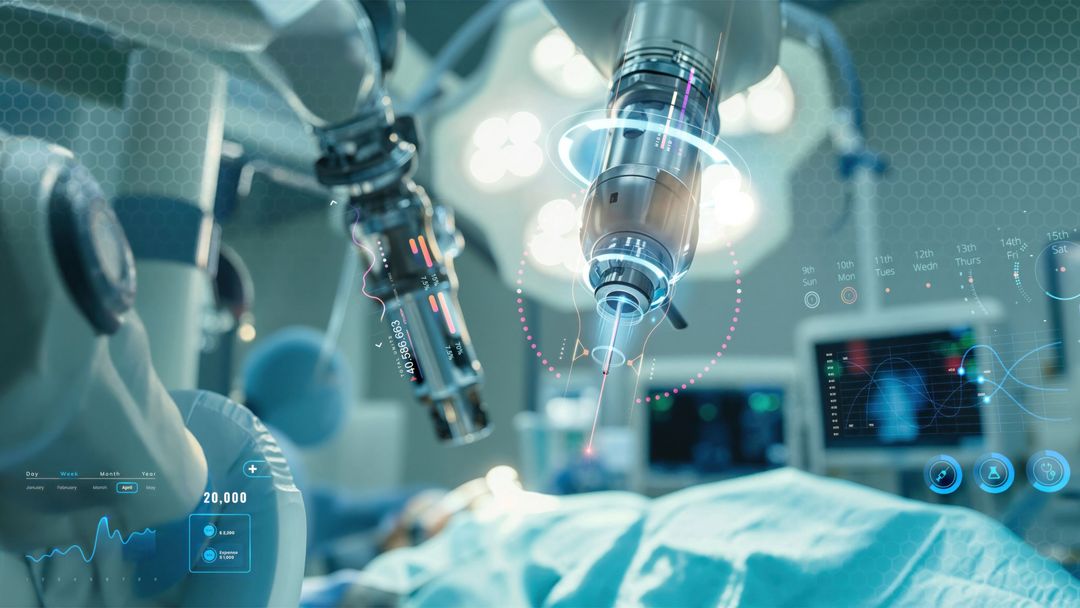
The objective of 6G makes it clear why research centres, companies, the European community and politicians are focusing on 6G as the mobile network of the future. 6G should be nothing less than the bridge that overcomes the boundaries between physical and virtual reality.
Digital sovereignty and strategic planning
With an unprecedented level of connectivity between people and machines, the new generation of mobile communications opens up numerous innovative use cases that will revolutionise everyday life and work. From new encryption technologies and medical monitoring to the control of robots by thought - the potential seems limitless.
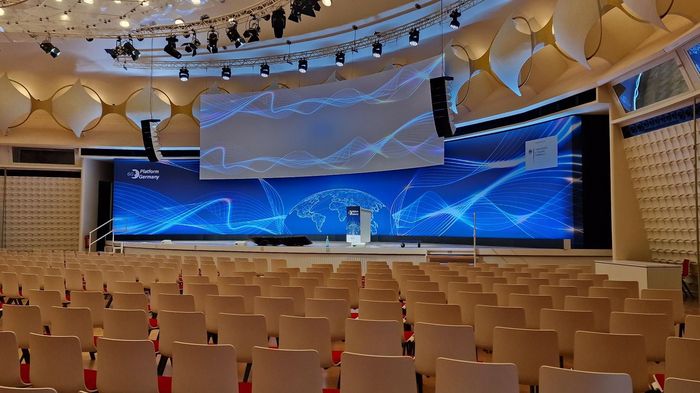 © Christoph Lipps | DFKI
© Christoph Lipps | DFKI © Christoph Lipps | DFKI
© Christoph Lipps | DFKITo make this future a reality, the stakeholders of the 6G Platform Germany are meeting at this year's Berlin 6G Conference 2024 to discuss, among other things, the central standards and benchmarks of 6G in order to reflect the various interests of research, industry and society.
6G Platform
In 2021, the strategy for Germany's digital sovereignty was adopted in the German government's framework programme and the 6G Platform Germany was founded as part of this. Professor Hans Schotten, head of the Intelligent Networks research department at DFKI (German Research Centre for Artificial Intelligence) and professor at RPTU (Rhineland-Palatinate Technical University) Kaiserslautern, is coordinating this platform and leading the Open6GHub project, which is supported by the Federal Ministry of Education and Research (BMBF) with funding of around 68 million euros.

"Finding a consensus on the standardisation of 6G is a challenging task. Different interests and priorities of companies and researchers must be harmonised. Within the mobile communications sector, markets and corporate strategies vary considerably, which requires additional coordination. Aspects such as market security and patent issues also play a key role here."
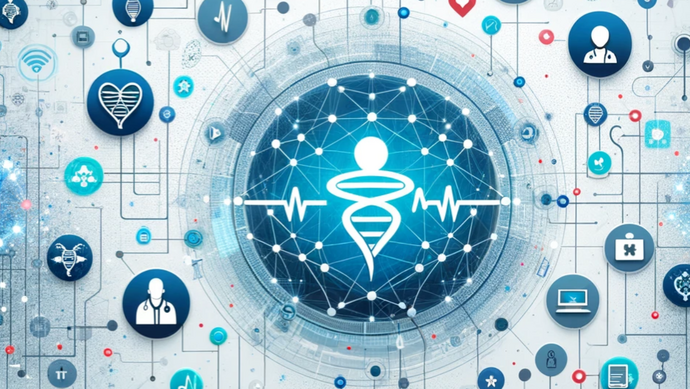
6G is currently in a phase of consolidating requirements, defining and preparing for standardisation. One thing is certain: compared to 5G, which focussed on industrial applications, 6G will put people at the forefront. One of the resulting use cases is the field of medicine and healthcare.
"6G has the potential to fundamentally change the healthcare sector. Due to its low latency, 6G enables operations over long distances in real time, which is particularly important in view of the shortage of specialists in specialised medical fields. In addition, wearable sensors and data aggregation can improve preventive health measures. For example, we can continuously monitor the health of patients and provide early warning of critical conditions such as heart attacks - the keyword here is prediction."
6G-Health
With future-proof healthcare as the driving force, 6G-Health is developing technology components for the integration of more powerful sensors in 6G, supplemented by network intelligence and artificial intelligence (AI). These innovations not only enable advanced patient monitoring and collaborative decision-making, but also the realisation of a smart hospital that creates new services and significant efficiency benefits through orchestrated data aggregation and intelligent sensor technology.

The security and resilience of 6G technology play a central role in the collection, processing and transmission of sensitive data, especially health data. At the same time, the data should be able to be used, for example through anonymisation, to create other added value for research and healthcare.
Reliable security mechanisms must also be implemented with regard to the sovereignty of networks that enable medical intervention in real time in order to prevent unauthorised access. Artificial intelligence is one of the tools used here.
"AI is a central component of 6G, especially in the areas of data security and cryptography. Examples of this include homomorphic encryption, as well as federated and distributed learning, which can protect sensitive health data and at the same time create added value for society. In addition, AI plays a crucial role in the orchestration and management of networks by intelligently routing data packets and efficiently managing resources."
"Fascinating possibilities are opening up, such as controlling collaborative robots (cobots) by thought using brain-computer interfaces (BCIs) or neuromonitoring workers to monitor their concentration - and recommend breaks. 6G is also revolutionary for private provision. Wearable sensors and data aggregation allow us to recognise health risks at an early stage."
The higher frequency range and shorter wavelengths of 6G will also open up pioneering possibilities for localisation in the future. For example, mobile communications can be used to locate an acutely needed device, such as a wheelchair within a hospital, in real time.
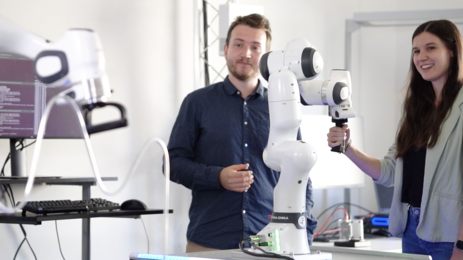 © Lando Lehmann | DFKI
© Lando Lehmann | DFKI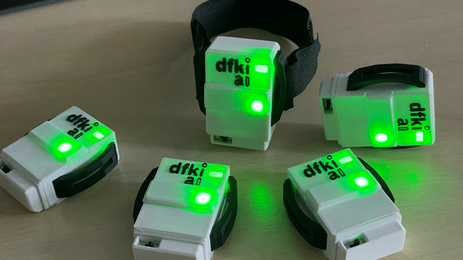 © DFKI
© DFKI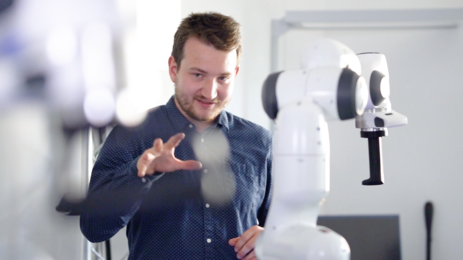 © Lando Lehmann | DFKI
© Lando Lehmann | DFKIDevelopment and standardisation
Despite all the potential and added value, it will take a few more years for the new generation of mobile communications to become established in society.
"A mobile phone generation takes around ten years to develop. The aim for 6G is to make the first solutions available by 2030 and to start standardisation by 2025. One of the biggest challenges here is to overcome the discrepancy in interests between researchers, society and industry. There are different market strategies and requirements within the mobile communications sector."
Even after its realisation, 6G technology will not be a sudden switch from black and white to colour. Rather, applications and use cases will be added gradually.
"Until 6G can be used to its full extent, there will be step-by-step releases that open up new possibilities. In the end, the mobile communications generation will be a colourful bouquet of different technologies and applications. Ultimately, 6G will revolutionise not only medical technology, but many areas of our lives."
Contact:
Christoph Lipps, M.Sc.
Team Lead Cyber Resilience & Security in der Forschungsgruppe Intelligente Netze, DFKI KL
- Christoph.Lipps@dfki.de
- Phone: +49 631 20575 5139
Prof. Dr.-Ing. Hans Dieter Schotten
Leiter des Forschungsbereichs Intelligente Netze, DFKI KL
- Hans_Dieter.Schotten@dfki.de
- Phone: +49 631 20575 3000
Press contact:
Further information: